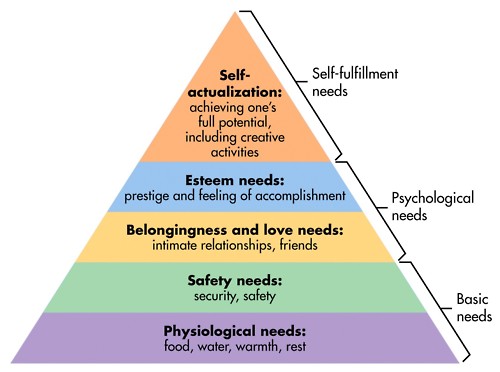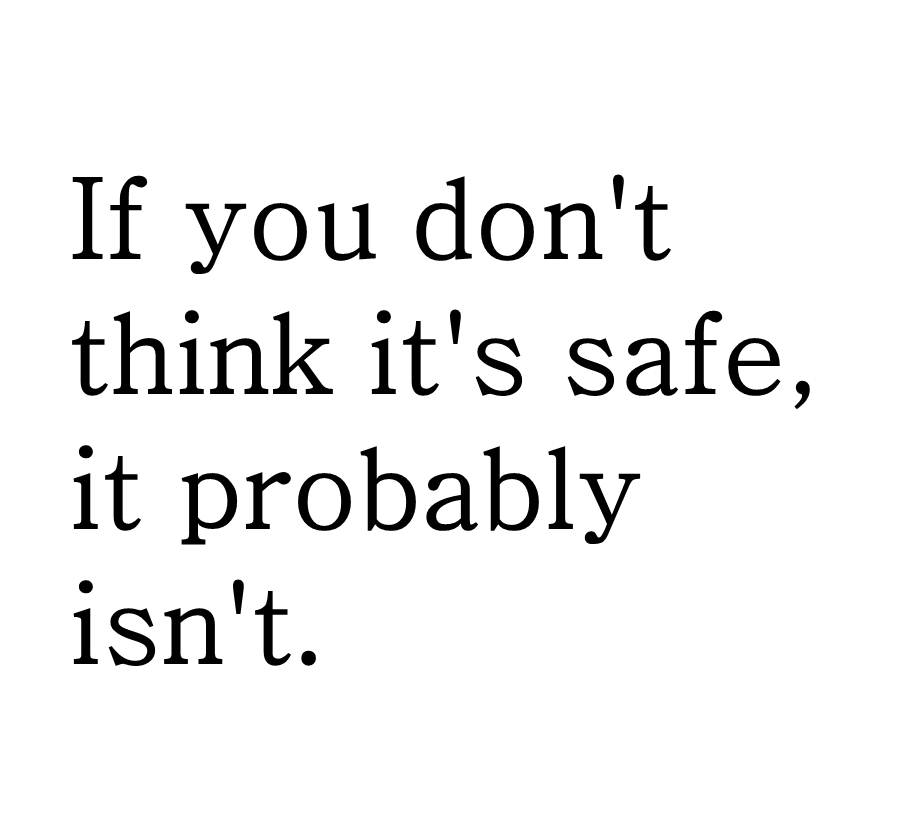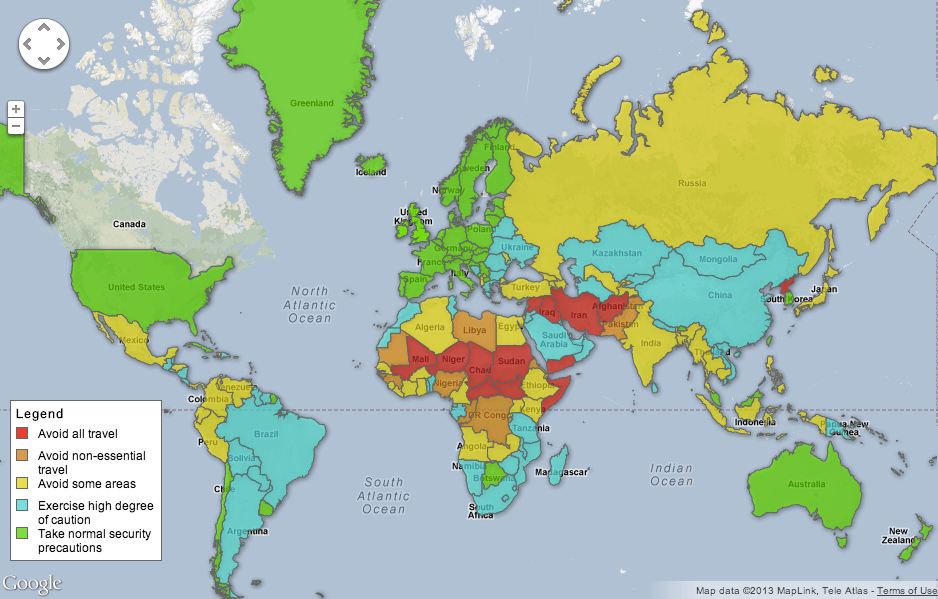Dangerous, dark and unsafe. Those are the first words that come to mind when I ask people about their expectations of Mexico. Expectations mainly based on drugs war reports in the media but also due to the unsafe reputation of capital Mexico City. I´m the last person to deny that horrible things have happened and are still happening in this country. I´m not trying to defend the nation for it nor am I saying that the administration has been doing a good job. Last year, Mexico ranked the 105th least corrupt country in the world, a problem that has greatly contributed to the crime problems. But when you ask me if I feel safe living in this seemingly dangerous country, I say “yes, very”.
 The safety need is the basic need for social security (Maslow’s hierarchy of needs)
The safety need is the basic need for social security (Maslow’s hierarchy of needs)
A New Country with New Safety Constraints
“If you don’t think it’s safe, it probably isn’t.”
My motto for taking chances. One of the reasons people move abroad is the search of a better quality of life, something that strongly depends on the basic need of social security. Your new country holds different safety constraints. I think especially when you move from a developed country to a developing country you come across situations you probably never thought of.
I remember the main problem we faced was the difficulty of estimating potential risks. Because how do you know which areas better not to enter, where you can park the car without problems, and whether you need extra security around the house/apartment or not? After the move, staying safe and secure wasn´t automatically guaranteed anymore.
I think common sense still takes you a long way, though some things you simply have to learn. I noticed that the safety feeling develops as you familiarize yourself with what’s risky and what’s safe.
We All Make Beginner Mistakes
A naïve foreigner is an easy target. A simple example:
We had just moved to Guadalajara and a Mexican guy tried to steel my smart phone. I was sitting outside on a bench reading on my phone and out of nowhere this guy of about my own size was on top of me. My response time was short and we were both holding the device firmly. After some minutes of pulling and pushing and kicking and screaming he finally let go and took off. He left me with my phone and two sprained fingers.
How did I end up in this situation? I made three beginner mistakes:
- I wasn’t aware of the crimes in the area that to me looked equally wealthy as my own
Avoid displaying expensive products of any kind in areas you don´t know - I probably still looked like a lost tourist naively unaware of her surroundings
Try to behave and dress like the locals as if you have been living there for years - I didn´t know how to respond adequately in the situation
It´s widely recommended to give criminals what they want before risking worse
I learned my lesson and didn´t use my phone outside again unless I was absolutely sure of the area. Lots of accients are this type of beginner accidents. Locals shrug their shoulders like “everybody knows that, you asked for it”. Ouch.
Common Sense & Other Precautions – #3 Steps
After my little incident with the (almost) phone thief I worried more than usual about my safety. I realized that I had to be more careful so I took some precautions to get my confidence back.
Step one. Acknowledging that I was living in a country with less stable national security than in my own country. Step two. Doing everything I learned to do with common sense, yet a little more cautiously:
- Keep an eye on your belongings
- Don’t trust anyone who gets a little too close
- Follow safety advice from others
- Choose safe living conditions
- Read local newspapers
- Avoid traveling alone, especially after dark
- Be wary of street vendors and innocent-looking children
- Etc.
Step three. Informing myself about crimes and other incidents specific to my new living area. This is kind of difficult I noticed since there are always people with different experiences offering different pieces of advice. But usually you can get a good idea of what´s going on around you and what´s wise to do.
An extreme example: Imagine that you´re being threatened with a gun while waiting for a red traffic light. How would you respond? According to general safety advice you would get out of the car and leave your money while hoping they only steal your belongings and leave your person in peace. Well, we have heard that in Guadalajara it´s recommended to accelerate and take off as fast as you can. Apparently it´s more likely that the criminals don´t chase the car nor do any further damage.
My point is that it´s important to inform yourself about area specific dangers. It gives you a better understanding of safety in the region and you will be better prepared just in case. There are several things you can do: Asking advice from well-informed locals, exchanging experiences with fellow expatriates, consulting the local embassy and informing yourself at the police station about current risks and crimes you should be aware of.
Based on the new information you adjust your thinking and you will start taking your decisions from within your new frame of mind.
A Matter of Making the Right Choices
A while ago, one of my compatriots who also lives in Guadalajara was on Dutch television. He lives in one of the more dangerous districts of the city. Clearly panicked he welcomed his parents and siblings who came to visit him as a surprise. He urged them to go inside the house as fast as possible because it wasn´t safe to be on the street. There had been a fight and it was in general a higher risk region.
You can imagine I was quite shocked seeing this. Not because of the danger in my city, but of the choices this guy had made. It was hard to believe that a foreigner would voluntarily move to such an unsafe place, especially when it´s not even necessary. You can live here both cheaply and safely; you just need to know where.
This example shows how two persons from the same home country and living in the same host city can have exact opposite experiences regarding their safety and therefore quality of life. It made me realize how personal safety is first and foremost a matter of making the right choices.
A Better Quality of Life
Inform yourself well, learn to act cautiously and make smart choices about where you live, work and hang out. I confirm that when you make the right decisions, a move from developed to developing does not necessarily decreases your quality of life; it can even be an improvement!
What about you, how safe do you feel in your new daily life?
Do you have specific safety tips for the city or region you´re living in?


